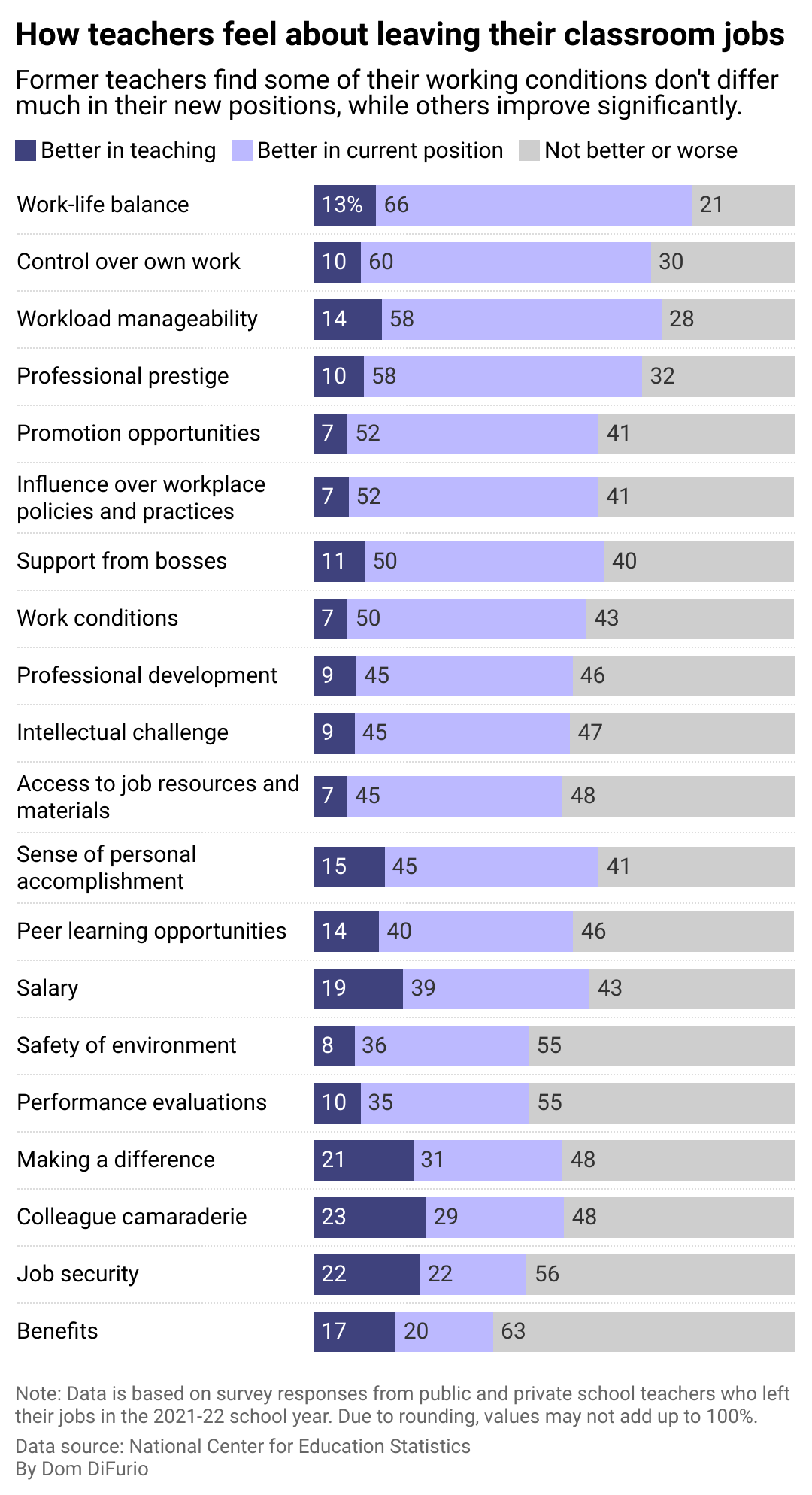
When teachers quit for other jobs, how is life outside of the classroom?
This story originally appeared on HeyTutor and was produced and distributed in partnership with Stacker Studio.
When teachers quit for other jobs, how is life outside of the classroom?
Reports of teachers leaving their jobs in search of more stability and higher pay are not uncommon, but is the grass greener on the other side?
HeyTutor analyzed data from the National Center for Education Statistics, published in December 2023, to show how teachers feel about leaving careers in education. Data includes results from the NCES' 2021-22 Teacher Follow-up Survey to the National Teacher and Principal Survey.
According to statistics from the NCES, 8% of public school teachers and 12% of private school teachers left the teaching profession after the 2020-21 school year. Although retirement was the biggest reason teachers left the classroom (16% of leavers), other main factors for leavers were personal life reasons like health or family care, wanting to pursue another career, salary issues, and general job dissatisfaction.
Burnout is a contributing factor. According to a 2022 Gallup poll, more than 4 in 10 (44%) teachers reported feeling significant levels of burnout, more than in any other profession. Teacher burnout levels were also consistently higher than in other jobs throughout the first two years of the COVID-19 pandemic.
Other leavers could no longer manage life on a teacher's salary. In 2021, teachers earned just 76.5 cents on the dollar compared to other college graduates, a record gap, according to the Economic Policy Institute, a Washington-based think tank.
Those who have left the classroom have had mixed success with their next job. The American Prospect reports that some teachers have managed to find jobs that pay much more than their teaching job and allow them to continue making a difference in people's lives. Other former teachers have a hard time getting prospective employers to understand the value of their classroom experience.

Nonteaching jobs afford former teachers work-life balance, manageable workloads
Beyond being in the classroom, teachers must plan lessons, grade homework, and often take on other roles at school that require hours of extra work—quite often for no extra pay.
One former teacher told Business Insider that as a result of leaving the classroom, she was able to have better work-life balance, a better salary, and a way to develop a clear career path. While some classroom leavers do note that elements of teaching were better than what they experienced in their next roles, many find that the work-life balance and financial breathing space make the leap worthwhile.
Story editing by Mary Reardon. Copy editing by Paris Close. Photo selection by Ania Antecka.



